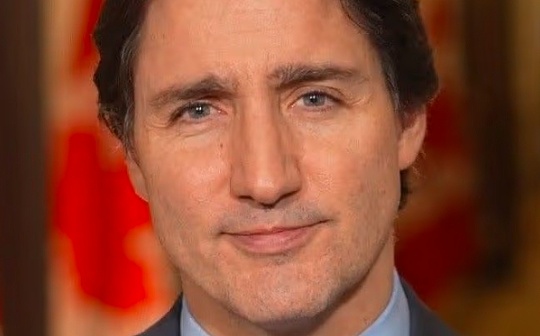
Source: Coindesk; Compilation: Wuzhu, bitchain vision
-
Canadian head of government and Prime Minister Justin Trudeau is about to step down after nearly a decade in the position.
-
Trudeau is seen as part of the Canadian federal government’s resistance to digital assets, so a friendlier alternative could be beneficial to cryptocurrencies, although provinces have been dominant.
Canadian Prime Minister Justin Trudeau announced his resignation on Monday, which could pave the way for Canada to build a government that is less crypto-resistant, despite provincial governments leading roles in deciding the future of Canada’s digital assets.
“I plan to resign as party leader and prime minister after the party elects a new leader,” Trudeau said at a press conference. He said that “internal struggle” has disrupted his governance.“I can’t be the one who brings liberal standards to the next election.”
Trudeau said he would resign from his 11-year position as Liberal leader and his post as prime minister since 2015.Critics of Trudeau in the crypto community condemn the government’s sanctions imposed on digital wallets during the 2022 Freedom Fleet protests.
The government’s move to freeze cryptocurrency accounts has caused a repercussion outside of Canada and has become a battle slogan for U.S. Republican lawmakers during the 2024 election.These politicians view this situation as a primary example of the danger of allowing central bank digital currencies (CBDCs) as this could lead to government intervention in cryptocurrency transactions.
Canadian elections are about to be held in October, according to polls,The Conservative Pierre Poilievre has a strong advantage.He has also won cross-border support from many supporters of U.S. President Donald Trump.
Poilievre has been an active supporter of digital assets in the past, but has been relatively silent on this topic lately.
In Canada, however, securities are provincial affairs, and with no national securities regulator like the SEC, the next leader of the Canadian Liberal Party (and therefore prime minister) or Poilievre has limited influence.
on the contrary,The Canadian Securities Administration (CSA), an umbrella regulator composed of provincial regulators, will have more say in the next step in cryptocurrencies.
One of the possible candidates to replace Trudeau is Mark Carney (who hasn’t officially announced his candidacy as the campaign hasn’t started yet), a Bank of Canada who has served as the president of the Bank of England and has a lot of cryptocurrencies and stablecoins.Say something.
He said in a speech by the Bank for International Settlements in 2021:“The core tokens of the programmable network must maintain the value of the token.”
Carney also said that tightly regulated stablecoins are the only way they can succeed, and if strictly regulated, “what is the difference between them and CBDC?”








